
June is a fantastic month to experience the incredible wildlife of the Galapagos! While the landscape may be drier than in earlier months, this makes it the perfect time for spotting birds and animals in their natural habitat.

June is a fantastic month to experience the incredible wildlife of the Galapagos! While the landscape may be drier than in earlier months, this makes it the perfect time for spotting birds and animals in their natural habitat.
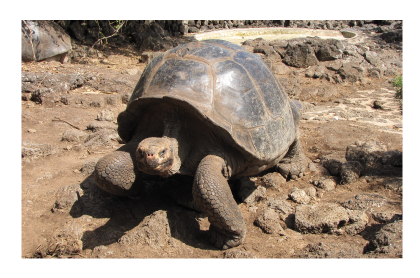
Tortoises Trek to Nesting Grounds
During this time, the giant tortoises from the highlands of Santa Cruz Island begin their journey down to the lowlands in search of the perfect nesting spots
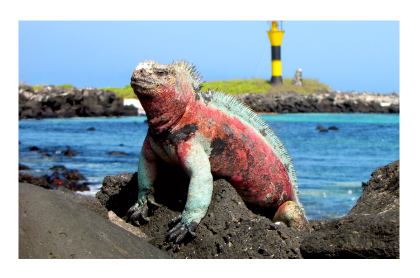
Marine Iguanas Show Their Colors
Meanwhile, marine iguanas start preparing for mating season, and the adult males begin to display vibrant colors think red, green, and turquoise! A true natural rainbow under the equatorial sun.

The fresher time of the year! The maximum temperatures you are likely to experience will be around 26 °C (79 °F), while the average is around 21 °C (70 °F). Visitors typically enjoy about 6 hours of sunshine per day in June. This is the time of year with lower temperatures compared to the rest of the year.

70-79°F
(21-26°C)

73°F
(23°C)

0.25 inches
(6 cm)

Tortoises Trek to Nesting Grounds
During this time, the giant tortoises from the highlands of Santa Cruz Island begin their journey down to the lowlands in search of the perfect nesting spots

Marine Iguanas Show Their Colors
Meanwhile, marine iguanas start preparing for mating season, and the adult males begin to display vibrant colors think red, green, and turquoise! A true natural rainbow under the equatorial sun.

The fresher time of the year! The maximum temperatures you are likely to experience will be around 26 °C (79 °F), while the average is around 21 °C (70 °F). Visitors typically enjoy about 6 hours of sunshine per day in June. This is the time of year with lower temperatures compared to the rest of the year.

70-79°F
(21-26°C)

73°F
(23°C)

0.25 inches (6 cm)
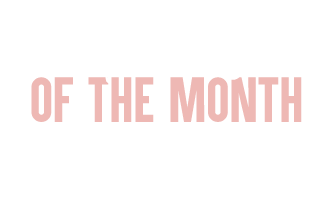
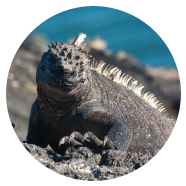
As black as the coal and volcanic rocks. Their dark scales have the remarkable ability to change color during mating season

Cruise ship visitors can cross paths with large colonies of marine iguanas on Fernandina, Española, Santa Cruz and Isabela Islands.
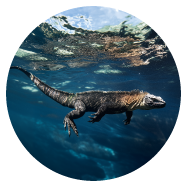
Their long, muscular claws allow them to cling tenaciously to algae-covered rocks.

Marine iguanas are bioindicators of the marine ecosystem, reacting to changes like El Niño. Their health gives early signs of environmental shifts.
Though they seem like simple sunbathers, they play a key role in Galapagos’ ecological balance. Protecting them means protecting the islands’ marine life.

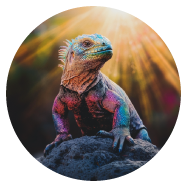
Marine iguanas change color according to the season?

Enjoy warm weather with less humidity, wildlife encounters, and ocean temperatures perfect for no wetsuit. Visitor sites may be less crowded before summer. Remember, the sun is strong on the equator sun protection and a hat are essential!

